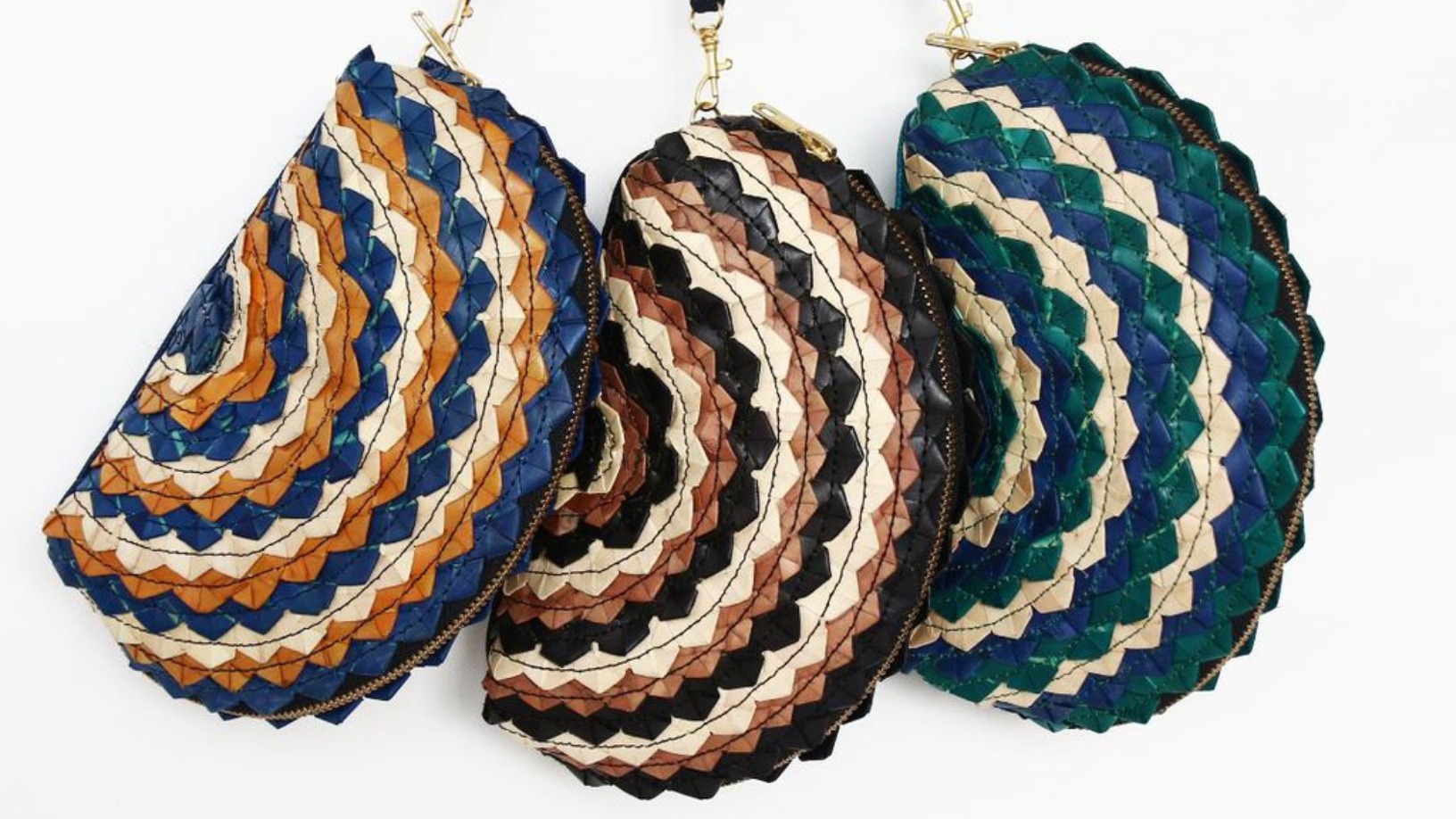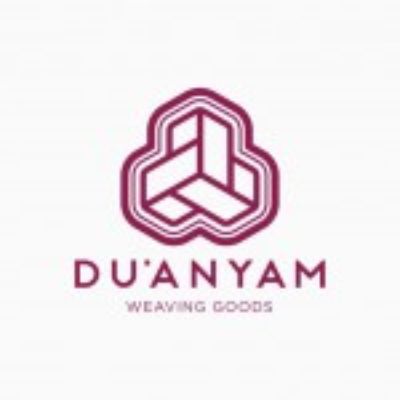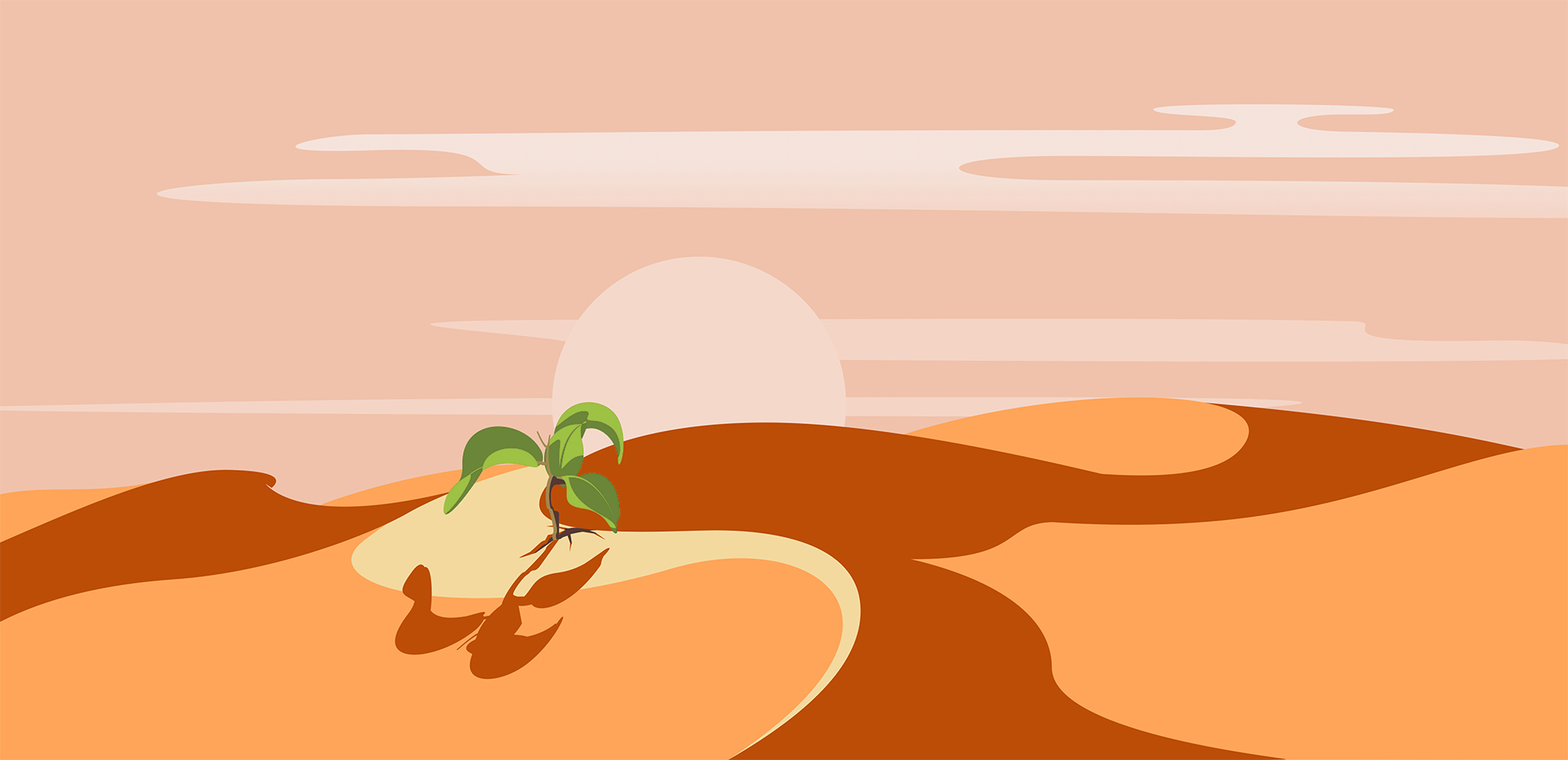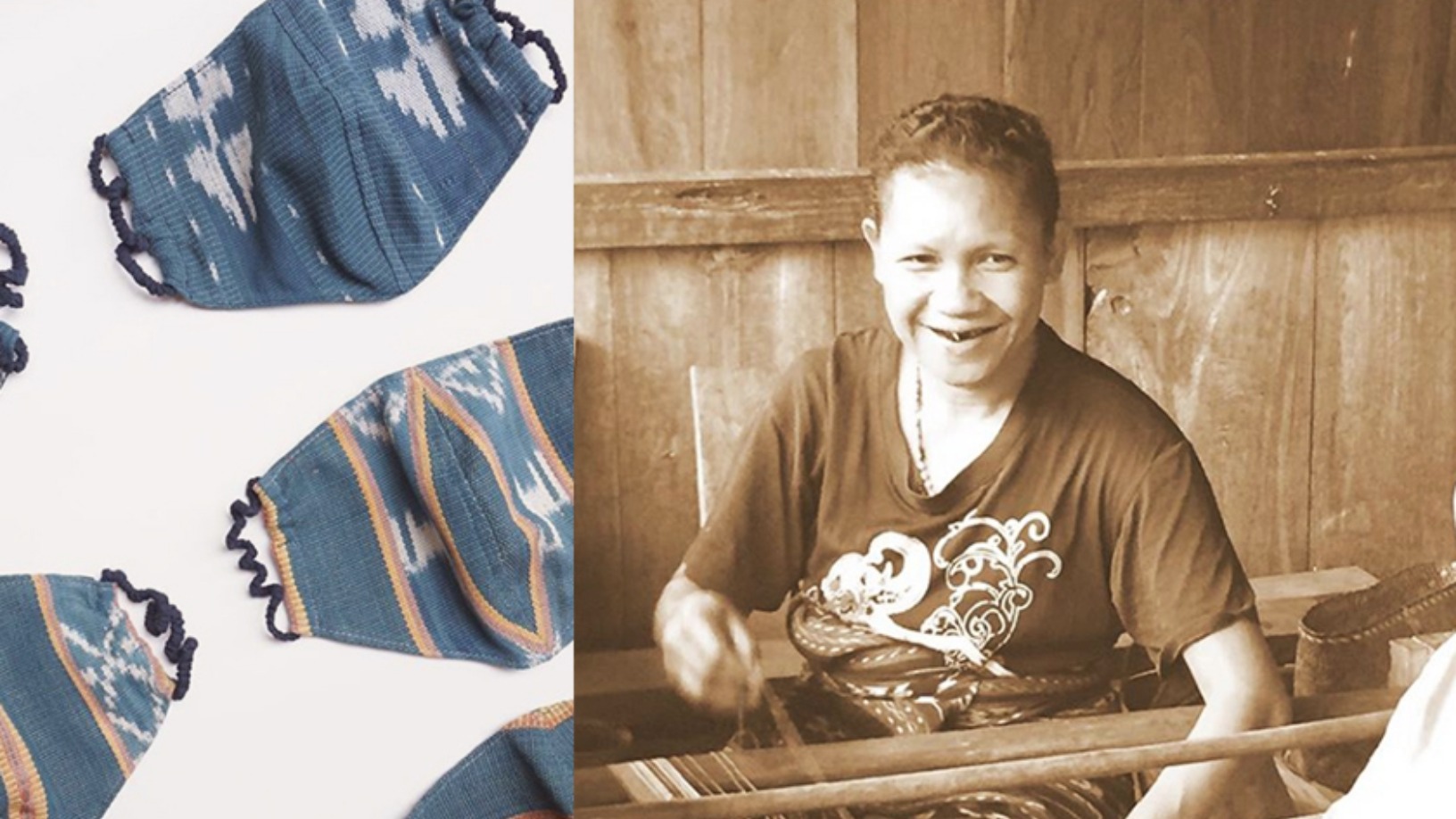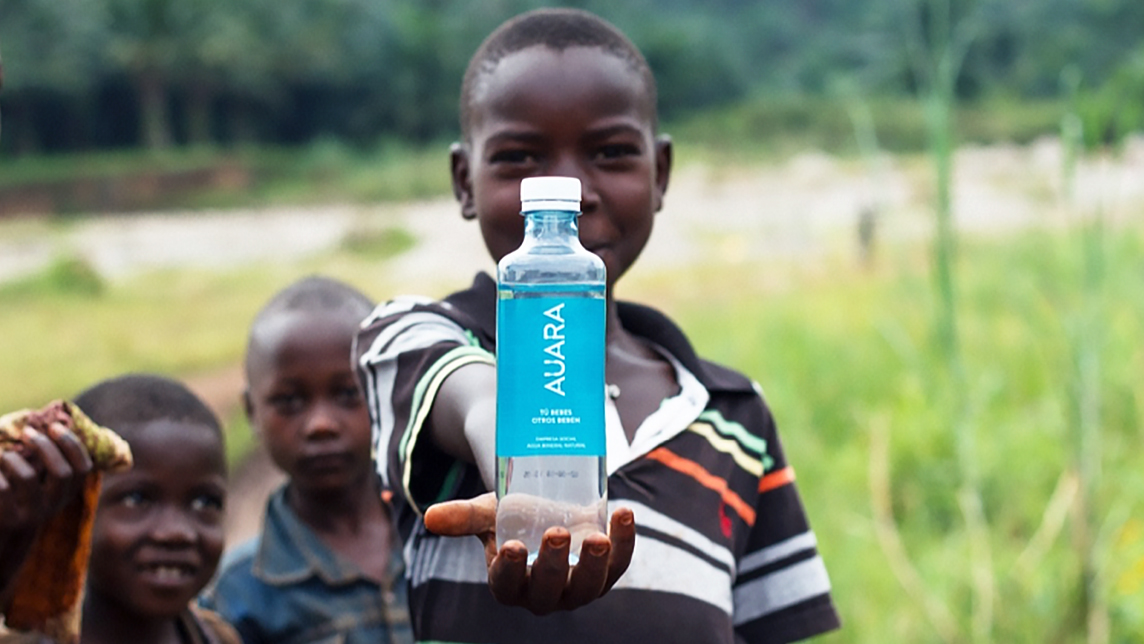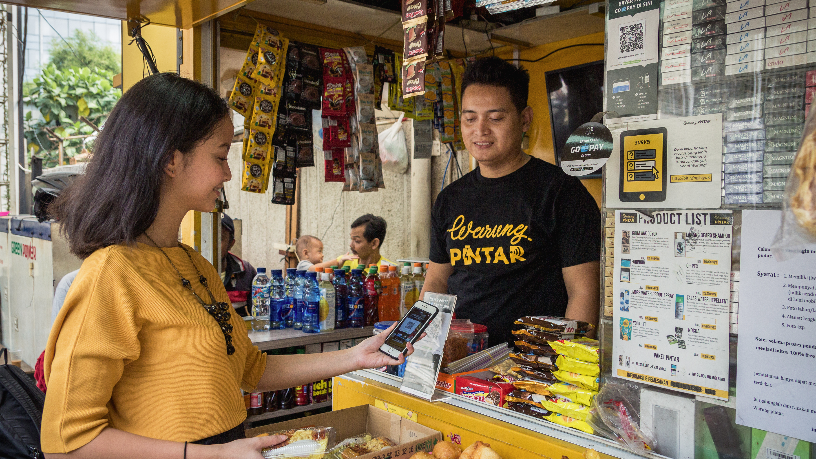Founded by three young women in 2014, Du’Anyam has helped hundreds of local women in rural communities to earn extra income by selling woven goods to some of the world’s most luxurious hotels like The Oberoi and the Marriott Vacation Club. Other corporate clients include Toyota and DBS, with the bank’s DBS Foundation also an investor in the company, together with the US NorthStar Foundation.
The Jakarta-based social enterprise quickly rose to fame as the official handicraft merchandiser for the Asian Games 2018 held in Indonesia. However, the Covid-19 pandemic almost destroyed Du’Anyam’s fledgling B2B business that relies on Indonesia’s tourism, hospitality and events industry.
In a recent online interview with CompassList, Hanna Keraf shares valuable insights into how the social enterprise is gradually recovering from the economic fallout caused by the pandemic. A native of East Nusa Tenggara province, Keraf observed that many women in her province could not afford to access better healthcare and nutrition for themselves and their children.
Together with college-mates Azalea Ayuningtyas and Melia Winata, Keraf worked out a way to help rural families to get better nutrition and improve their livelihoods. Instead of forming an NGO or a charity foundation, they opted for a more active approach by employing rural women to weave handcrafted souvenirs and fashion accessories to be sold in bulk to hotels and corporate customers.
The interview has been edited for length and clarity.
How did Du'Anyam begin?
I started Du'Anyam in 2014 with my partners Ayu and Melia. We saw certain problems that women in remote areas were facing. Women were having very limited access to social programs that give them better nutrition and health. It's not because the programs are deficient, but it's because the women have little to no access to the cash that they can use on their own. Therefore, they have very little awareness about financial planning.
We tried to find a way for women to get enough money to enable them to get the healthcare and nutrition for themselves and their children. More importantly, we had to make sure that the solution does not add to their workload too much. The extra income will provide better living standards for themselves and their children.
We found that the women already have a marketable skill, which is weaving. There were many who could weave, the raw materials are abundant, and the demand for artisan crafts is there, locally and abroad. We decided to use a social entrepreneurship approach instead of NGO or charity work. We want to be an active actor in providing that access to cash. We provide training to the craftswomen, so their products can fulfill market standards while also maintaining local uniqueness and values. We also provide market access.
Why did you start in Flores?
East Nusa Tenggara (NTT) province is one of the worst in Indonesia when it comes to mother and child health. There are also very few alternative livelihoods for women in the province, with most relying on agriculture. Around 2013, I was still living in the province and I was able to understand their situation and decision-making process. So, we decided to start here.
Now, Du'Anyam is also working with groups in Papua, Kalimantan Selatan. Women in these provinces are also facing similar problems, albeit with some differences. Some villages lack fresh water, in other villages there are few opportunities for formal education.
The root of it is lack of cash that is accessible by the housewives. Money is mostly earned and controlled by the husband, which limits various activities like getting proper nutrition. If they can have their own income, they can make better decisions, like buying better food and fresh water, or saving money towards their child's education or health.
Have you faced resistance or challenges from the community when you approached them?
Yes, because each community has different cultures and social relationships. We always try to adapt ourselves to each community, and there is no fair "one-size-fits-all" solution. Sometimes the challenge comes from the husbands of the weavers, who feel that their wives should be taking care of the household, and that earning a living is the man's job.
In one extreme case, one husband threatened to burn the woven goods. The wife had to weave in secret in her neighbor's house. After the wife earned money and managed to buy groceries on her own, however, the husband came around and decided to take on some household chores so his wife could have more time working. We have to adapt to these different situations.
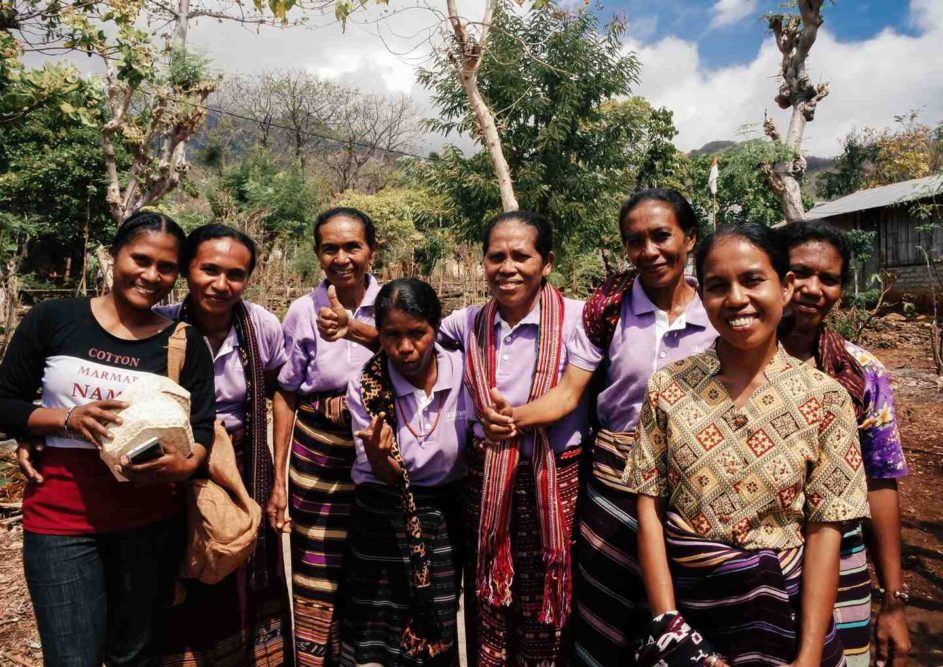
Who are your buyers?
About 90% of our clients are wholesale B2B buyers. They are corporations who need certain souvenirs or goods for events and internal use, and hotels who buy amenities like hotel slippers and beach bags. We have also been exporting to buyers from eight countries. We do a small amount of B2C retail as well.
However, we focus on B2B to minimize inventory risk and ensure that the weavers get a steady income. B2B means big orders at each transaction, numbering in the hundreds. If you do retail, you might only get a few orders in a month and it can be months before the next order.
How are the weavers paid?
We buy the products outright, shouldering the inventory risk. As long as the weavers can meet the standards, they don't have to worry about waiting until the products are sold before they get paid because we buy it from them and pay upfront.
Have you measured the social impact of your activities?
We do it every year. We are happy to report that more housewives are thinking of saving their additional income, which is in line with our mission to empower women with financial capabilities to improve their lives. We also see a rise in household income thanks to their new line of work.
Is there any aspect of your social impact work that you feel needs improving?
We have distributed 4,000 food packages to women who work with us, but there's still a lot of work on this part to be done. Children can only be free of stunting risk if they get proper nutrition throughout a certain period in their life. So, we have to continue working with our partners to ensure that happens. We also want to cultivate a mindset of eating local, nutritious foods.
Many businesses had to reduce spending or even shut down due to Covid-19. How has it affected Du'Anyam?
We tried to pivot to retail, something we're not used to. We had to push our internal system toward retail for a while. We also produced things like masks and other products themed around Covid/new normal. No shipments came from NTT because of the sudden logistics closures. We had limited shipments from the villages we work with elsewhere for four months.
Do the weavers still get compensation during this period?
Not at all. We were hit quite hard too. Some projects had to be postponed or cancelled. Other clients could not pay because they were cash-strapped. It was a difficult decision for us, but we had to ensure that Du'Anyam can survive post-Covid. So, we reduced purchases to ensure that we can still pay our team and not lay off anyone in our team. We are grateful that the government has been providing direct cash assistance to some villages, with each household receiving IDR 600,000 a month for 3–4 months. That helped to tide them over.
Do you still do B2C sales now or are you going back to B2B?
We hope to return our focus to B2B. Our system was built for B2B from the start, it was not built to make individual packaging for the products, and we mostly handled bulk purchases. There is growing demand for our B2C sales, but slowly we are going back to B2B with some orders coming in.
Do you have any plans to raise funds this year?
Yes, we do. We are still observing the situation. We planned to raise funds earlier this year but the pandemic means we had to put it on hold. Everyone has limited resources and are focusing on recovery. Most likely it will happen in the second half of this year, if everything can be prepared in time. We cannot disclose the amount or range yet until we can be more certain about it. By then, we'll announce to the public.
How will the funding be allocated?
Du'Anyam will launch an app this year. This app will provide training modules that we have been using with the communities that work with us. We have planned this for a while, but the pandemic has pushed us to work even harder to finish the app and reach out to work with more communities.
We have been testing the app internally, trying out a function where we can post orders to our weavers and manage the orders. This will be launched very soon, and form our future focus to reach more artisans. They will be able to use this app to manage orders and access our training modules, just like what we've been doing for years.
We hope they can learn from us and use our systems. We want to refute the idea that our micro, small and medium-sized enterprises (MSMEs) lack a market for their products. The real difficulty is responding to the market demand, especially for massive production numbers. They need to be able to project how many people and resources they need, the payments, things like that. These are the real issues that MSMEs are facing, more back-end things rather than market access.
